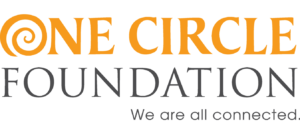
Working On Our “Stuff”
I’ve been considered selfish in my lifetime and hard to work with, I’ve been called a bitch (I may have earned that one a few times), and as an adolescent, I followed through with a plan to take my own life. Just one of these behaviors is enough for some people to distance themselves. Luckily, I have had people in my life who have stuck by me. They gave me the support I needed to grow, to learn, and most importantly, they gave me multiple chances. I think about this when I’m working with families who are struggling, when I’m facilitating structured support groups for youth, and when I’m showing up for my friends and family. How I show up is important to me.
Through my life experiences, I know the only way to manage my triggers is to deal with my “stuff.” And, let’s be real here: working on your stuff SUCKS! It’s hard, uncomfortable, scary. I have tried multiple therapeutic modalities, such as Cognitive Behavioral Therapy, Group Therapy, Art Therapy, and most recently Somatic Experiencing Therapy. All of them have uncovered historical family and childhood traumas that I have either repressed, masked or straight up ignored--they were too painful to deal with.
The first time I shared with my mother what I was working on in therapy, our Historical Family Trauma, I don’t think I composed my sentences with “I” statements. I remember her being upset, as though I was blaming her, which was not my intention. My parents did the best they could with what they had. If we look at the norms of their generation, the Boomers, people didn’t seek therapeutic services back then. We’re still battling the stigma of therapy today; I can only imagine how strong the stigma was around therapy as my parents grew up. I’m sharing this part of my journey with you because in a minute I’m going to encourage all of you who are reading this to start working on your “stuff.” Before I do that, I needed to share with you how I could have handled the conversation differently with my mother. I could have removed the blame I gave my mother by simply using “I” statements.
Now that I’m in my 40’s, and a mom, I know how important it is to break the cycle of family trauma. I have a 9 year old son on the spectrum. Watching him struggle in school brought up all my old “stuff” around my education. I became extremely irritable towards my family, and one of my undesirable family traits is yelling, I yell when I’m triggered. This is why it’s important for me to deal with “stuff” and manage my triggers. My son doesn’t deserve to carry my shame, and when I’m triggered and yell, I’m giving him my shame, and the cycle continues.
To all the parents, caregivers, aunties, uncles, teachers, mentors, and to anyone else who spends time with young people, when you discover one of your triggers, it’s your responsibility to manage them. Lean on your support system, find someone you can discuss them with and make a plan filled with ideas on how to manage them. Remember, you’re not alone on this journey. I am always finding new ways to manage my triggers. As life goes on, I will discover new ones, and it will be my responsibility to manage those, too. Our triggers are information; view them as such. You get to decide what to do with them.





Leave a Reply